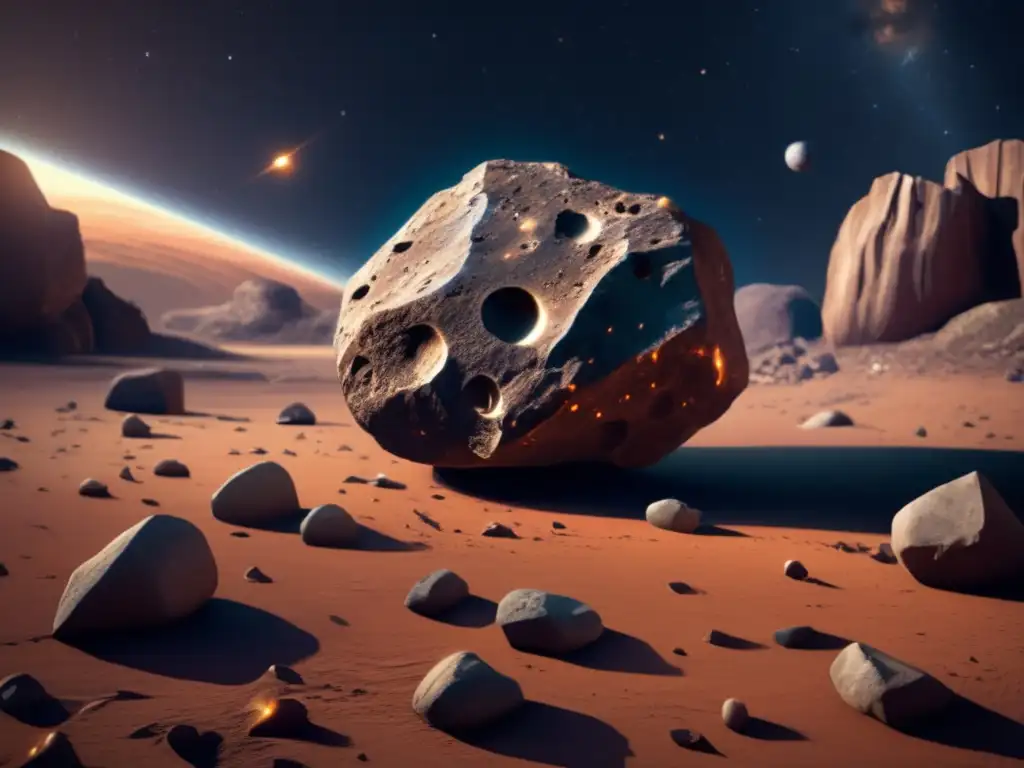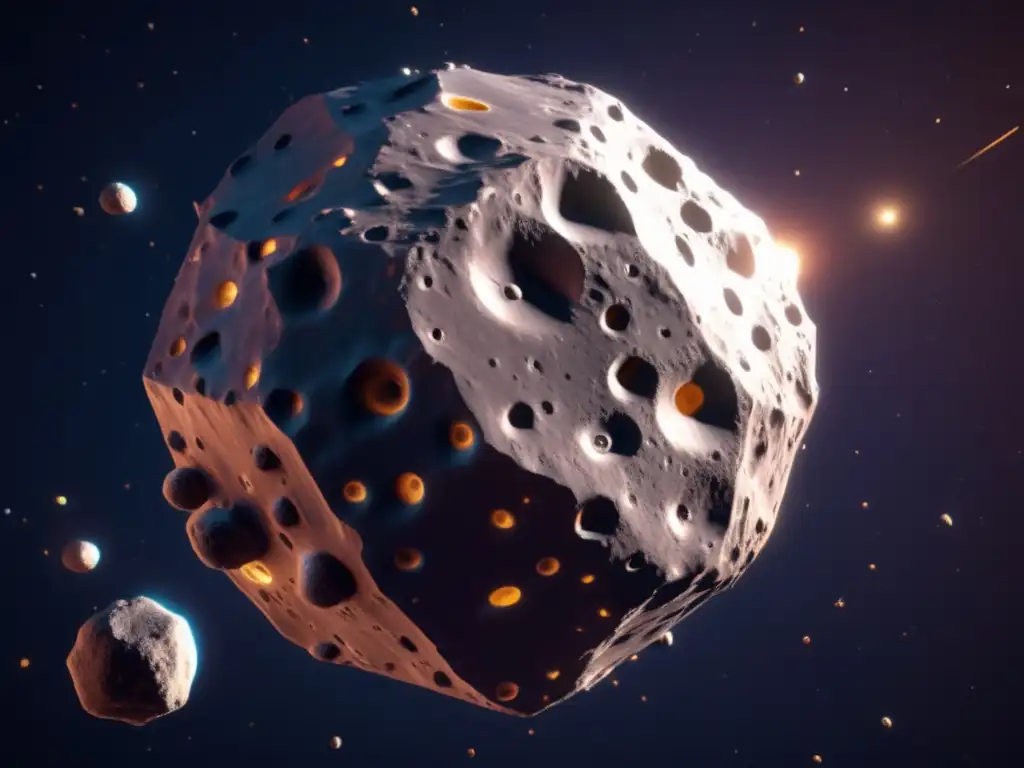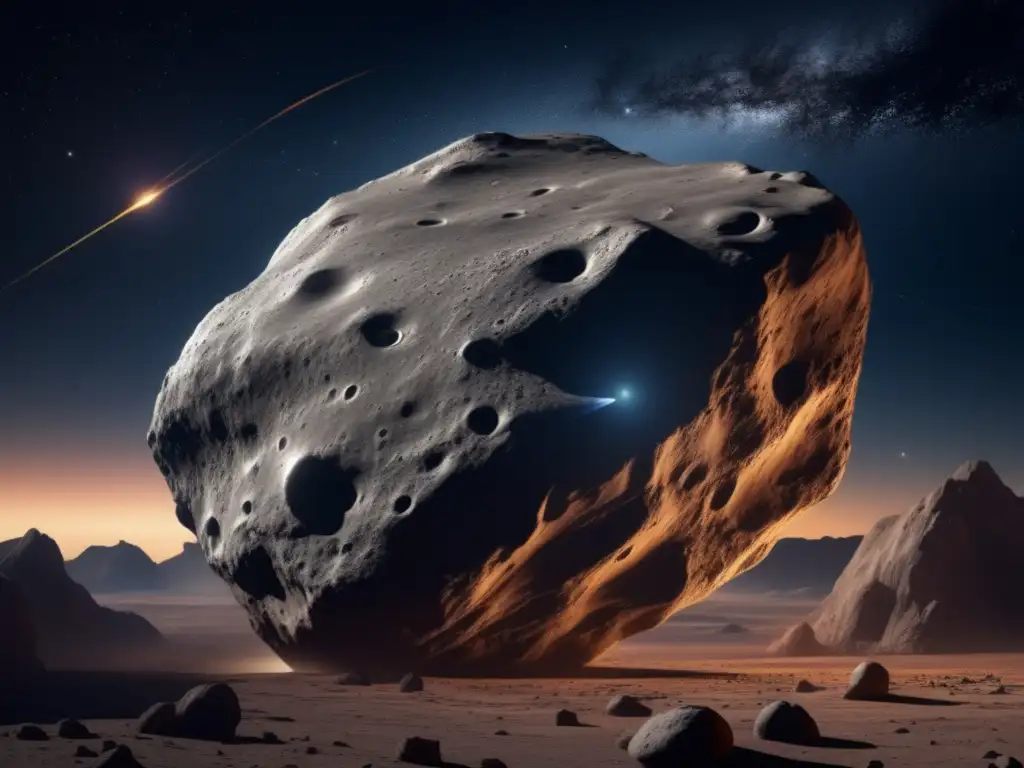Unravelling The Mysteries Of Asteroid Hecuba

Introduction
Welcome to Asteroid Realm, where we explore the fascinating world of asteroids. In this article, we will delve into the mythology, history, and cultural significance of Asteroid Hecuba. Join us on this journey as we unravel the mysteries surrounding this celestial object.
Asteroid Hecuba - A Profile

The Discovery of Asteroid Hecuba
Asteroid Hecuba, also known as 108 Hecuba, was first discovered on April 2, 1869, by French astronomer Auguste Charlois. It is named after Hecuba, a prominent figure in Greek mythology. This asteroid resides in the outer regions of the asteroid belt, orbiting the Sun between Mars and Jupiter.
Physical Characteristics of Asteroid Hecuba
Asteroid Hecuba is classified as a C-type asteroid, indicating its composition is carbonaceous. It has an estimated diameter of approximately 82 kilometers and a rotation period of about 10.5 hours. Based on spectroscopic analysis, scientists believe that this asteroid may contain organic compounds and water ice.
Asteroid Hecuba's Mythological Significance
In Greek mythology, Hecuba was the queen of Troy and the wife of King Priam. She played a central role during the Trojan War and experienced immense tragedy, including the loss of her children and the fall of Troy. The naming of this asteroid after Hecuba honors her resilience and enduring spirit.
Scientific Studies and Exploration

Observations and Research
Asteroid Hecuba has been the subject of scientific study through ground-based observations and space missions. Astronomers have used various telescopes and instruments to analyze its composition, surface features, and rotational characteristics. These studies provide insights into the formation and evolution of asteroids in the solar system.
Future Missions and Exploration
While no specific missions are currently planned for Asteroid Hecuba, future exploration endeavors may include flybys, sample return missions, or even potential human visits. Such missions could offer a greater understanding of the asteroid's composition and aid in the broader exploration of asteroids in general.
The Cultural Significance of Asteroid Hecuba

Influence on Literature and Art
Asteroid Hecuba has inspired various works of literature and art. Its mythological connection to the fall of Troy and the tragedies endured by Hecuba has been depicted in numerous poems, plays, and paintings. Artists and writers often draw parallels between the resilience of Hecuba and the enduring spirit of humanity.
Asteroid Hecuba in Popular Culture
Asteroid Hecuba's symbolism and mythological background have also found their way into popular culture. It has been referenced in science fiction novels, movies, and video games, often representing themes of resilience, tragedy, and the exploration of the unknown.
Frequently Asked Questions

-
How was Asteroid Hecuba discovered?
Asteroid Hecuba was discovered by French astronomer Auguste Charlois on April 2, 1869.
-
What is the composition of Asteroid Hecuba?
Asteroid Hecuba is classified as a carbonaceous (C-type) asteroid, indicating a composition rich in carbon compounds.
-
What is the mythological significance of Asteroid Hecuba?
Asteroid Hecuba is named after the queen of Troy in Greek mythology, symbolizing resilience and the endurance of the human spirit.
-
Has Asteroid Hecuba been explored by spacecraft?
There have been no specific missions to Asteroid Hecuba, but future exploration endeavors may shed more light on this celestial object.
-
How has Asteroid Hecuba influenced art and literature?
Asteroid Hecuba's mythological connection has inspired various literary and artistic works, exploring themes of resilience and tragedy.
Conclusion
Asteroid Hecuba offers us a glimpse into the captivating world of asteroids. Its mythological significance, scientific exploration, and cultural impact demonstrate the enduring fascination with these celestial objects. As we continue our exploration of asteroids, let us not forget the remarkable stories they hold and the insights they provide into the universe we inhabit.
We hope this article has deepened your understanding of Asteroid Hecuba. We encourage you to share your thoughts and engage with www.asteroidrealm.com by subscribing, sharing this article on social networks, or participating in the comments section below. Thank you for joining us on this journey through the wonders of the asteroid realm.
Additional Resources

To learn more about asteroids and their significance, check out the following resources:
 The Unique Qualities Of Asteroid Hector
The Unique Qualities Of Asteroid Hector The Tale Of Discovery: Asteroid Anchises
The Tale Of Discovery: Asteroid Anchises The Unusual Features Of Asteroid Deiphobus
The Unusual Features Of Asteroid DeiphobusIf you want to discover more articles similar to Unravelling The Mysteries Of Asteroid Hecuba, you can visit the Asteroid Profiles category.
Leave a Reply

Articulos relacionados: